- What John Lennon Thinks of Donald Trump - November 14, 2016
- The Meaning of Fun: The Paul is Dead Rumor - February 3, 2016
- BEATLES-STREEP-SHEA SHOCKER: IT’S NOT HER!!!! - August 13, 2015
DEVIN McKINNEY • Once, a long time ago, I tried to maintain, just for the record, a running tab of Beatles references or mentions that cropped up in the course of my day. During that period (the latter half of the 1980s), the daily references were not many; the group’s public profile was in a relative slough of despond, and looking back, we can pinpoint those years as equidistant between the first Great Beatles Revival (1976-78) and the second (1994-95). Though I lost the tabulation long ago (so much for “the record”), I can bet it would, if compared to similar checklists from the last twenty years or so, assist in demonstrating that the incidence of Beatles refs has jumped many-fold.
That’s partly because adding the Internet to our daily reading greatly increases our incidental exposure to everything under the sun, from Tea Partyers to teenage vampires. But of course the Beatles are at another level of ubiquity from most cultural or historical entities, and references to and commentaries on them are simply and ineluctably there—waiting to be found, offered as fact, anecdote, or opinion fodder in the musings of writer-thinkers you didn’t know had ever spoken up about them. Here are two instances encountered in the last couple of weeks.
The Beatles as unreliable narrator
The first comes from the American novelist John Gardner (1933-82), whose most famous work, Grendel (1971), I couldn’t much appreciate because I’m insufficiently familiar with Beowulf, the medieval epic from which it derives; but whose signal work, the vast and virtually indescribable The Sunlight Dialogues (1972) I’m almost done with, and have found pretty marvelous. This quote is extracted from an interview conducted in 1973 by Joe David Bellamy and Pat Ensworth:
Before the Beatles, music was one way, and after the Beatles, music has been another way. As a matter of fact, in all the arts, the Beatles are a sort of turning point. With the squares, however much one admires squares—I mean Hemingway, Faulkner, all those guys—the voice is always straight. You know they’re telling you this serious thing. Certainly they all have their ironies. But basically Hemingway is going to tell you something true.
… Another way of saying this is: the tradition of the short story and the novel as it came to be defined straight across the forties and fifties gives way in the sixties to a sort of tale-and-yarn tradition, where there is a distinct voice, a narrator, a guy talking who is definitely not the writer and who is fun to listen to and fun to watch and who tells you all kinds of things that may be true and may be false.
“May be true and may be false”: I like Gardner’s equation of the Beatles, and the creative reorientations they catalyzed or exemplified, with the unreliable narrators and epic, parodic works that cap recurrent waves of fancy and invention throughout literary history, from Gargantua and Tom Jones to Giles Goat-Boy and The Sunlight Dialogues. (Dullblogger Ed Park, conversant critic of contemporary fiction, could produce many more recent instances.) Like the Beatles, this genre of novel—picaresque, carnivalesque, not so much genre-hopping as genre-chomping—incarnates and keeps alive the Renaissance spirit (Gardner’s “tale-and-yarn tradition”) of vitalism and variety. Like the Beatles, it delights in color and comedy, a multiplicity of masks, play for its own sake. It is somewhat gross and somewhat clinical—much like the Beatles (as I find them, anyway), who were equally creatures of Star-Club scum and studio strategy.
Midnight in the garden of true and false
But if Gardner’s analogy bears fruit on one branch, on another it produces a withered bud. He implies a dichotomy between the true and the false, the limitations of which when applied to music, any music, are legion. One can apply it directly, perhaps, to many Beatles songs, particularly McCartney’s, because they are novelistic or short-story-like (the unsympathetic would say “novelettish”) in the sense of setting up narrative situations with specific characters in concrete settings. (See Nancy Carr on Paul McCartney vis-à-vis Dickens.) But that leaves whole other lands of Beatle music untouched, and incomprehensible.
The literalist demand for truth is problematic simply because it reduces the levels of perception and appreciation open to a reader or listener, reducing a work’s meaning and value to its capacity for moral truth-telling. (A function, not incidentally, that was of supreme importance to John Gardner: see his controversial book-length essay On Moral Fiction.) Few people reading this, perhaps none, would claim that the Beatles’ mask-wearing, play-making, or free-associating—though parodic, fanciful, or in some sense evasive of “the truth”—rings emotionally or imaginatively false. How is “I Want to Hold Your Hand” true or false? I don’t know if the Beatles want literally to hold the hand of whomever they’re singing to, and don’t care: I believe absolutely that they want to express loving emotion in a physical way. At the other end of the cryptic corridor, in what sense is “Strawberry Fields Forever” either true or false? Its lyrics are among the vaguest ever written. Yet more than any other, it is the Beatle song that turned me on to the world; its truth is unsurpassed by any song that speaks “truthfully,” or claims to. To my way of hearing/feeling, this is the truth that matters in the realm of song—not the literal, but the emotional truth.
This is the direction Gardner’s true-false analogy takes, but only if we think it all the way out; if we take it literally. And if we should “learn” anything from the Beatles, it’s the folly, not to mention the relative dullness, of taking things too literally.
Miss Rigby and Miss Gee
And the second is from the English critic Robin Wood (1931-2009), from an essay called “Creativity and Evaluation,” first published in the journal CineACTION! in 1990 and reprinted in the collection Personal Views (2006). This was posted a couple of weeks ago on the Facebook fan page maintained in Wood’s honor.
One could, I think, argue seriously (without making any extravagant claims) that the Beatles in their brief heyday, and within their cultural context, represented a more interesting kind of creativity than is embodied in the works of [W. H.] Auden. Many of their songs (including “Eleanor Rigby”) significantly extended the range of expression and subject-matter of which “pop” music was capable. “Eleanor Rigby” remains, for me, somewhat distasteful—perhaps because “expression” and “subject matter” haven’t quite jelled and the chirpy, jaunty tune is at odds with any socially aware compassion one might find in the lyrics. Compassion, in fact, is again what the song lacks, and the effect is once again of condescension, and the establishment of a superiority bordering on (perhaps passing over into) contempt. …
The working class tradition from which the Beatles came, and the generalized youth audience they ended up addressing, scarcely offer more progressive attitudes to the unmarried woman (aka “old maid”) than the audience for poems by intellectuals prior to the emergence of militant feminism. What makes “Eleanor Rigby” so much more acceptable than [Auden’s] “Miss Gee” is, nonetheless, its social context. The question is of who is being invited to feel superior and why. At the heart (though it doesn’t have one) of Auden’s poem is the ridicule of a woman who failed to fulfill her “true” biological function, produced with smug calculation for an intellectual elite assumed to share the attitude. The Beatles song, on the other hand, is addressed primarily to a disaffected younger generation ready (up to a certain point) to reject the values of conservative bourgeois “respectability,” though without any clear idea of what might replace them; its animus is directed as much against organized religion as against old-maidness. Its appeal, that is, is to a potential anti-establishment solidarity (we are in the age of the “hippie” movement), even at the moment when the Beatles themselves were becoming an Establishment institution. That seems far less reprehensible than the knowing flattery of an elite.
This starts out well. Our boys compare favorably in this case to Auden, by some reckonings the greatest English poet of the twentieth century. I’m warmed that Wood, a favorite writer of mine, seems to favor my favorite band. But the estimation is abruptly crushed by the principled humanist’s higher distaste, before being only nominally salvaged in the last sentence. The disapproval directed at “Eleanor Rigby” is almost unbelievable, but not because the song is some holy object, or a particular fetish of mine. I say “unbelievable” simply because some part of me can’t believe how … I think the term is wrongheaded—how wrongheaded is Wood’s analysis.
Just for background: Robin Wood has been in my critical pantheon since I read his first book, Hitchcock’s Films, at the age of 13. In making the case for Hitch’s greatness in the face of widespread derision or belittlement (Wood compared him to Shakespeare!), the book showed me that the film medium had interpretive possibilities I’d never imagined, that it was just as rich a field for analytical plunder as literature (whose critical traditions were far more well-established). That led directly to my writing about film, which accounted for my break-in as a published writer. In the years since, I’ve reconstructed with great interest Wood’s 1970s evolution from a bourgeois paterfamilias to an openly gay, Marxist-feminist espouser of radical politics, who candidly revisited and revised many earlier opinions in the light of a newfound and hard-won ideology. I’ve often disagreed with Robin Wood, but have never questioned his sincerity; his dogma can be wearing, but his head has usually been sound.
The chirp in Marx’s machine
The words “chirpy” and “jaunty”—they snag, as did “true” and “false” in Gardner. They are lazy words, for a start; Wood should have found more precise synonyms. But as to meaning: Do you hear “Eleanor Rigby” that way? Maybe you do; if so, we’ll have to discuss that at the appropriate time. For certain, one Facebook respondent agreed with the assessment that lyrics and tune fail somehow to match up, and brought in his 10-year-old son as corroborant: if you didn’t know what the words were saying, this kid told his dad, you’d think it was a happy song. Maybe he’s just a happy kid, bless him, and even at his post-infantile age hears all songs narcissistically, as reflections of his own immediate state. All I can say is that I first heard “Rigby” when I was around this kid’s age, and paid attention to the words only after absorbing the sound; but I never, ever mistook it for happy.
The problem with John Gardner’s true-false analogy, again, is that it demands, if taken too literally, a dichotomy inappropriate to music, which is, I’d argue, a physical medium before it is a literary one, effecting the body well before it hits the brain—and the body (which encompasses not just the genitals but the less socialized parts of the brain) has whole other zones of truth open for business. But if left alone, as a fluttering fancy, Gardner’s notion is a winner. There’s nothing fanciful, on the other hand, about Wood’s reading of “Rigby” (he’s the least fanciful of critics), which leaves only the limitations of the literary-literal approach.
Wood clearly takes the song’s lyric as its first (and essentially only) premise. Finding it lacking in compassion, even bordering on contempt, he transmogrifies the melody, performance, production, sound, the entire physical effect of the record, into something “chirpy” and “jaunty.” I.e., his literary apprehension of the song’s words distort or obviate his consideration of everything else about it.
To a degree, the Marxist assertion—that human relationships and social dynamics are defined and determined, more than anything, by class privilege—also limits Wood’s ability to hear and feel “Rigby.” What compassion the song has doesn’t register with him because, for the radical critic, a middle-class liberal’s compassion (which will tend to be educated, mainstream, and within the system) is only another bourgeois evasion: we extend our kindness to unfortunates like Eleanor in the form of mournful musings, while congratulating ourselves on our superior capacity to feel pity. That’s a perfectly defensible read and legitimate critique of “Eleanor Rigby”—or would be, except that it doesn’t account for what is powerful or troubling about the record. Not the song—which is, after all, a set of encoded markings printed in black ink on white paper—but the record: the calculated and mastered, yet still raw and living thing that the Beatles and George Martin put together and released into the world.
That’s a book, and this is a record
Robin Wood couldn’t care less about “Eleanor Rigby” as a record. He cares about it as a set of words, a collection of directly interpretable verbal observations. But I’d argue that “Rigby,” as much as any pop record, lives at least half its life in the netherworld of the non-verbal: the scrape of the violins, the tone of Paul’s voice, the dynamic leap from his solo plaint to the arching wail of the double-tracked refrain. And you can know that nether only by—gulp—listening to the record. Studying the sound as if it were a text, with its own, very different set of signs and signifiers.
A record is not just a commercial construction designed to bring a return of profit on a certain investment; it’s also a spontaneous eruption of human and mechanical sound, the meanings and effects of which are unpredictable. (An irony here is that Wood’s approach to music—to treat it as if it were literature—is itself nothing if not a reflex of the Cambridge-educated bourgeois he’d once been. He might have taken a cue here from the socially conventional but sensually radical Victorian critic Walter Pater, who in “The School of Giorgione” and elsewhere wrote about music’s sensual and ineffable—that is, non-literary—powers far more perceptively, and poetically, than virtually any contemporary critic.) My problem with the literary-literalist approach—the approach that privileges sense over sound, that makes all subordinate to the direct signification of words divorced from sonic or performing context—is that it makes nothing of, that it ignores completely, those unpredictable meanings and effects.
And if we should “learn” anything from the Beatles, their music and their phenomenon, it’s that the unpredictable is where the real action happens.


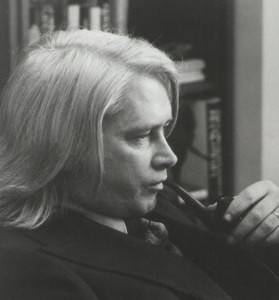

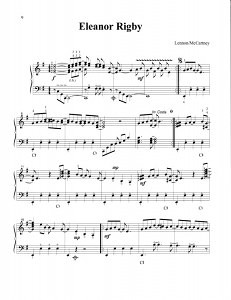
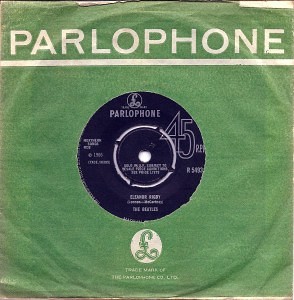

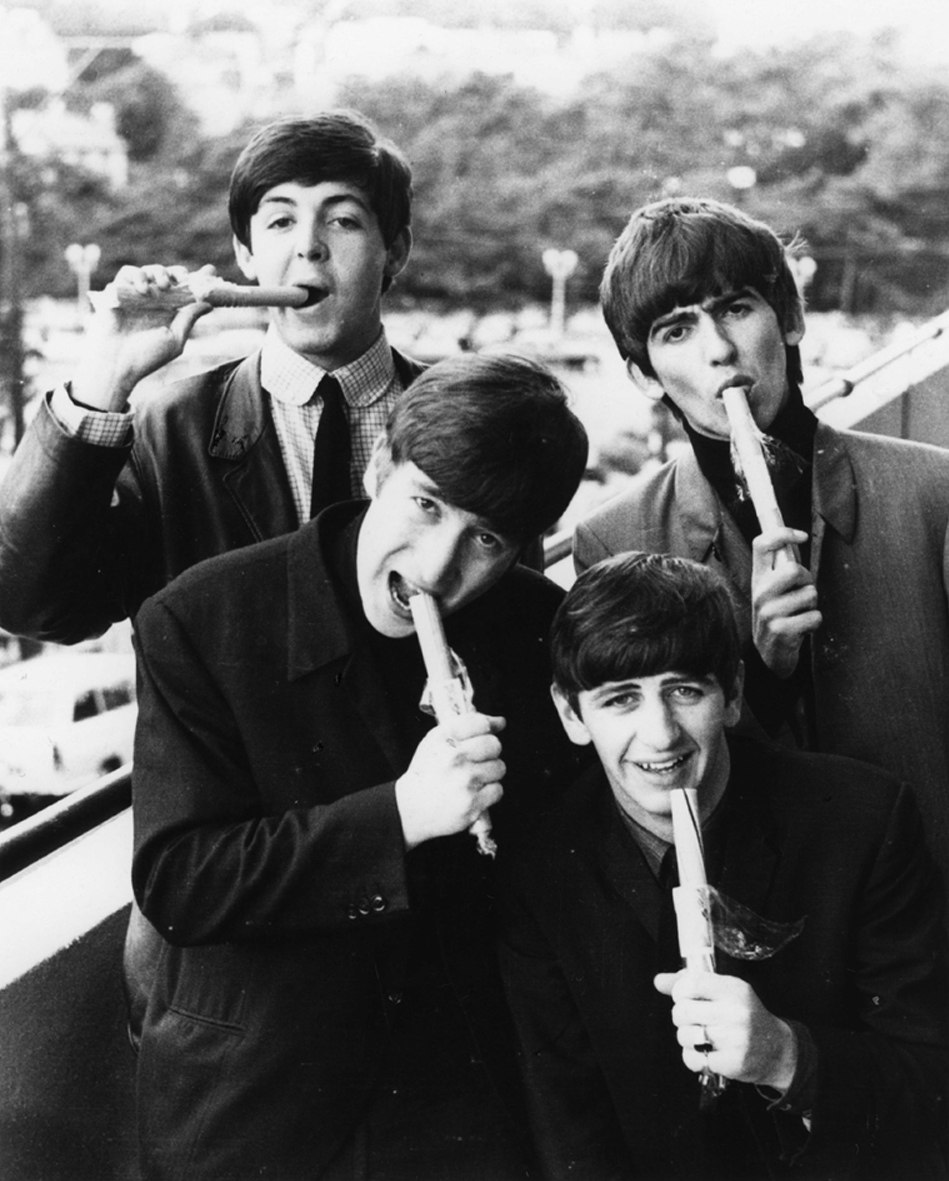
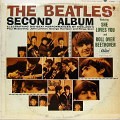


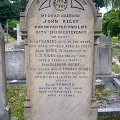

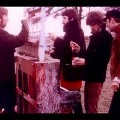

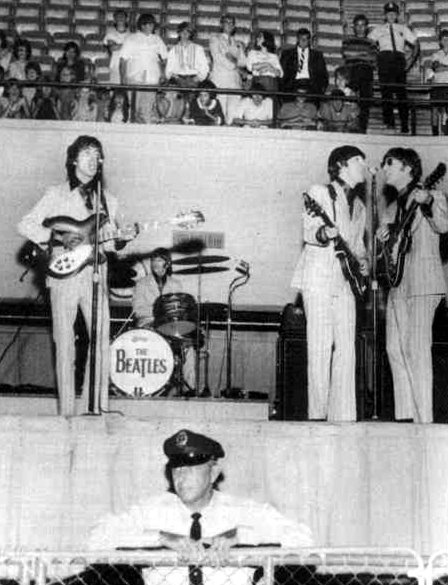
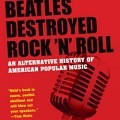
What a superb post. I will be chewing this over for a while, Devin.
Wow, lots to think about here, Devin. Thanks for drawing our collective attention to these two critical evaluations of the Beatles’ work.
Gardner seems to “get” the Beatles—their essential spirit, what’s appealing to them—in a way Wood doesn’t. And I absolutely agree with you about the Beatles illustrating the folly of taking things too literally.
Wood’s remarks about “Eleanor Rigby” I find frankly baffling. The music is “chirpy” and “jaunty”? Sure sounds melancholy to me. And I don’t see the song as at all contemptuous of its characters. Wood may well have a point about the song’s implied critique of organized religion, since the church manifestly doesn’t save or even provide community for Rigby or Father McKenzie, but nowhere do I hear contempt. The repetition of “look at all the lonely people” seems to ask listeners to pay attention to the people who are often overlooked, and to feel for them.
Now, as you point out, that kind of empathy can be rejected from a Marxist standpoint as an evasion. I’d say that not only is Wood writing about the song as a “collection of directly interpretable verbal observations,” but that he isn’t even doing that well enough to recognize the empathy in the lyrics at all.
What Wood ends up revealing is that once you commit to a particular set of critical blinders they determine what you’re going to see in any work. If you’re a hard-line Marxist you’ll see economic oppression and false consciousness. If you’re a true-believing Foucauldian you’ll see people internalizing oppressive social structures. The critics able to illuminate works of art are the ones able to approach it on its own terms first without needing to fit it into the box they have ready and waiting. Fundamentalist criticism, of whichever stripe, is only going to tell you that everything proves what the critic already knows.
Finally, I wish some version of your assertion that pop music “lives at least half its life in the netherworld of the non-verbal” could be emblazoned on the wall of every music critic. It’s very difficult to write about sound and very easy to write about lyrics (since they’re already words, duh) but that shouldn’t be an excuse to treat music lazily or superficially.
Devin, excellent post. Growing up with the Beatles, I took their unpredictability for granted. It wasn’t until I heard other bands being totally predictable and uncreative, that I was able to appreciate what JPGR had achieved.
What I like about “Eleanor Rigby” (among many other things) is that McCartney sings it in such a dry, anti-emotive manner–that he doesn’t wear his sympathies on his sleeve. That seems more dignified than oozing all over the object of his compassion. For that matter, his dry-eyed delivery of stuff like “Yesterday” or “For No One” has exactly the same effect on me: it keeps the pathos in check. It was the other Fabs, and Lennon in particular, who had this effect on him, even though they hardly participate in the actual recordings. Contrarily, he tends to wreck (or at least mar) his post-Beatles work via emotional overstatement. I’m slightly confused by Gardner’s distinction, though. Weren’t lots of High Modernists doing the carnivalesque thing and twiddling with the reader’s notion of sincerity? Joyce? Eliot? Beckett? Flann O’Brien? “Strawberry Fields Forever” is, as you say, true. That’s my two cents.